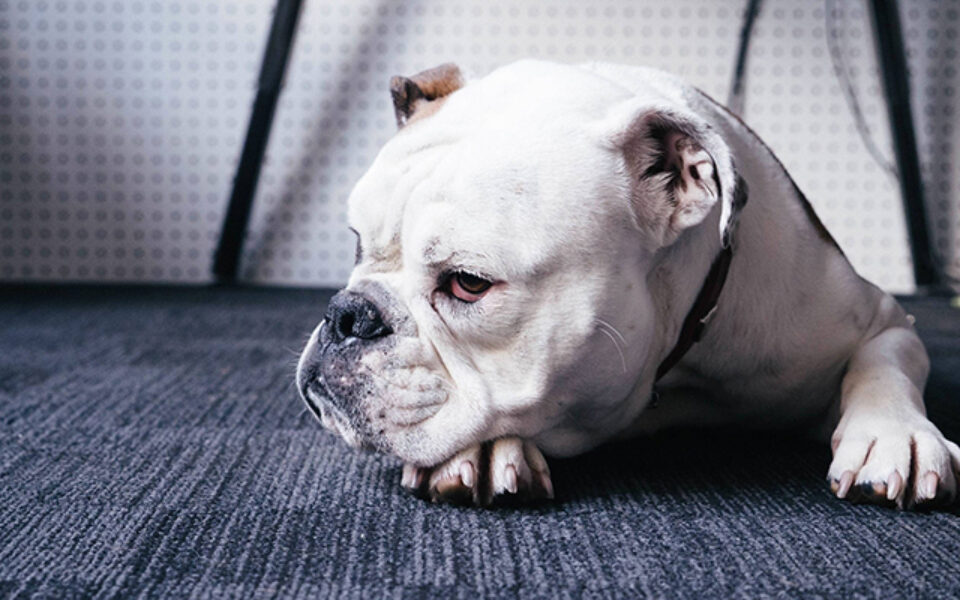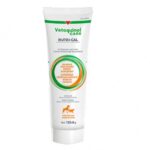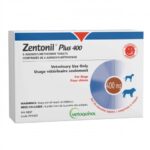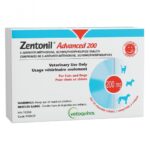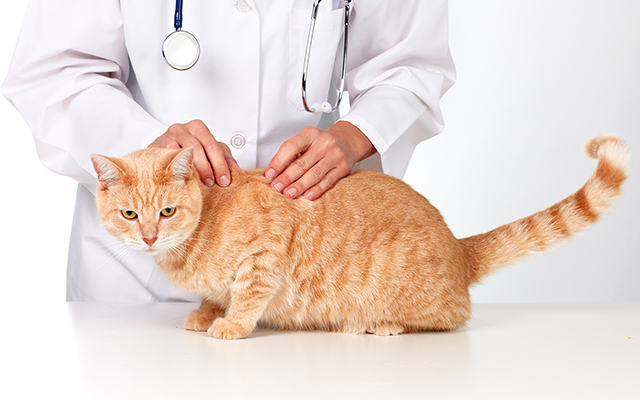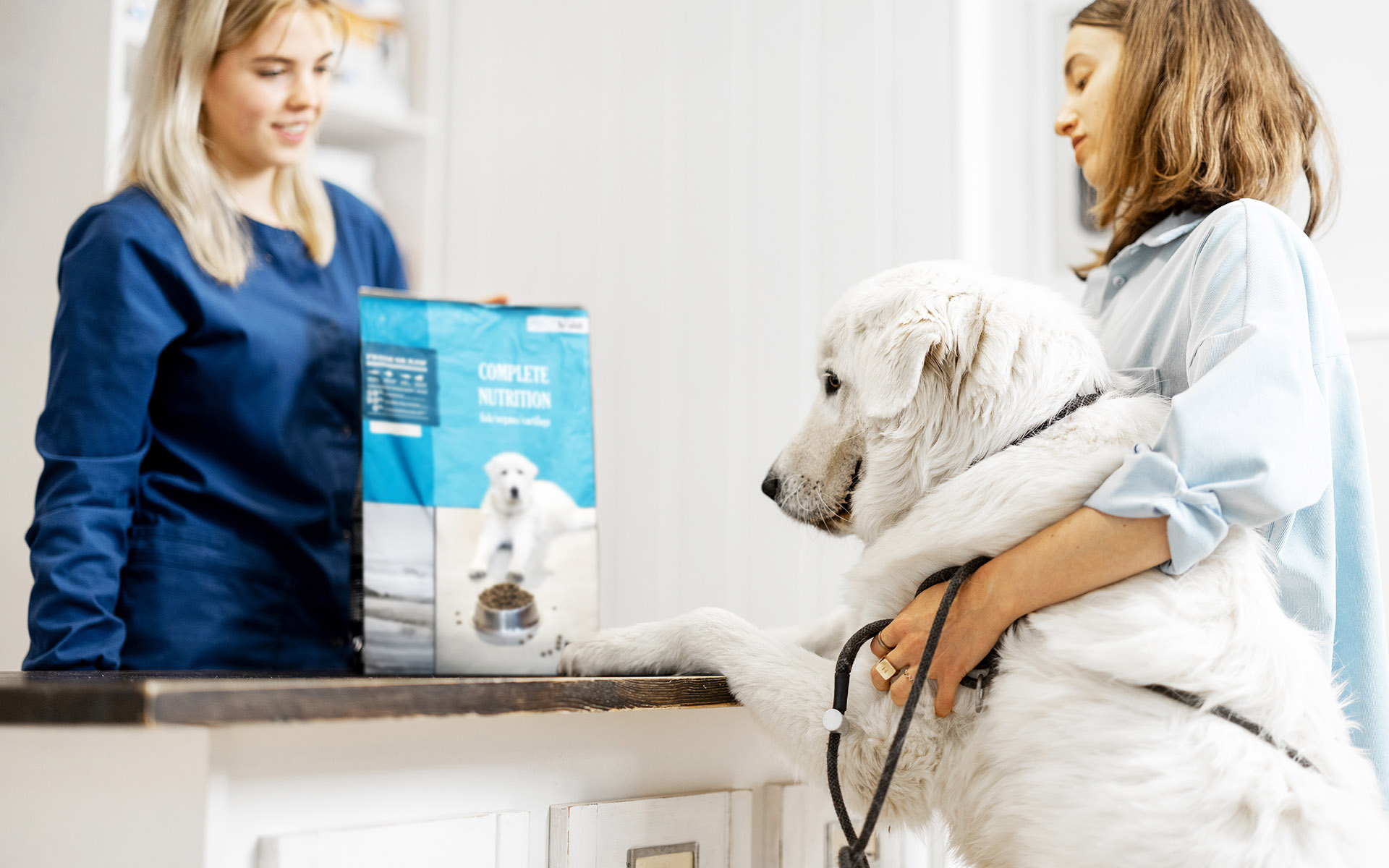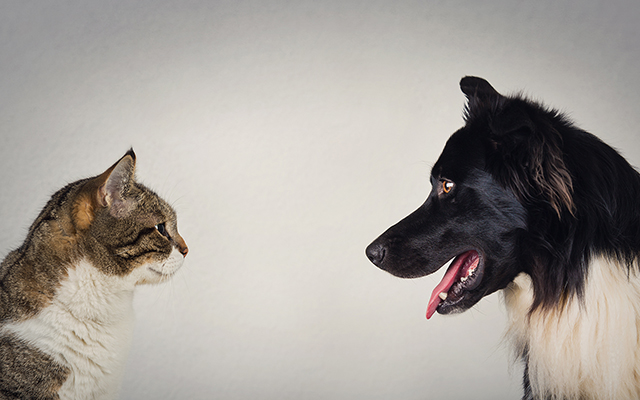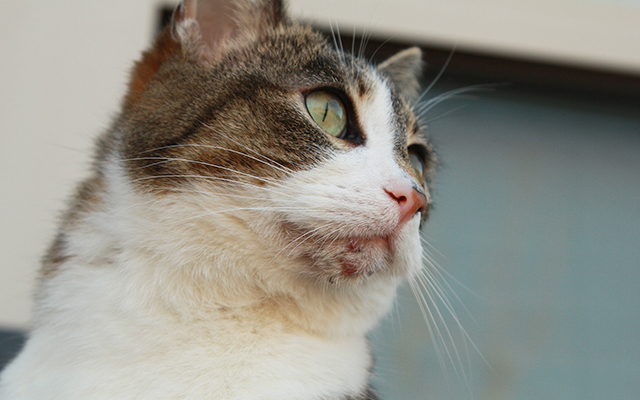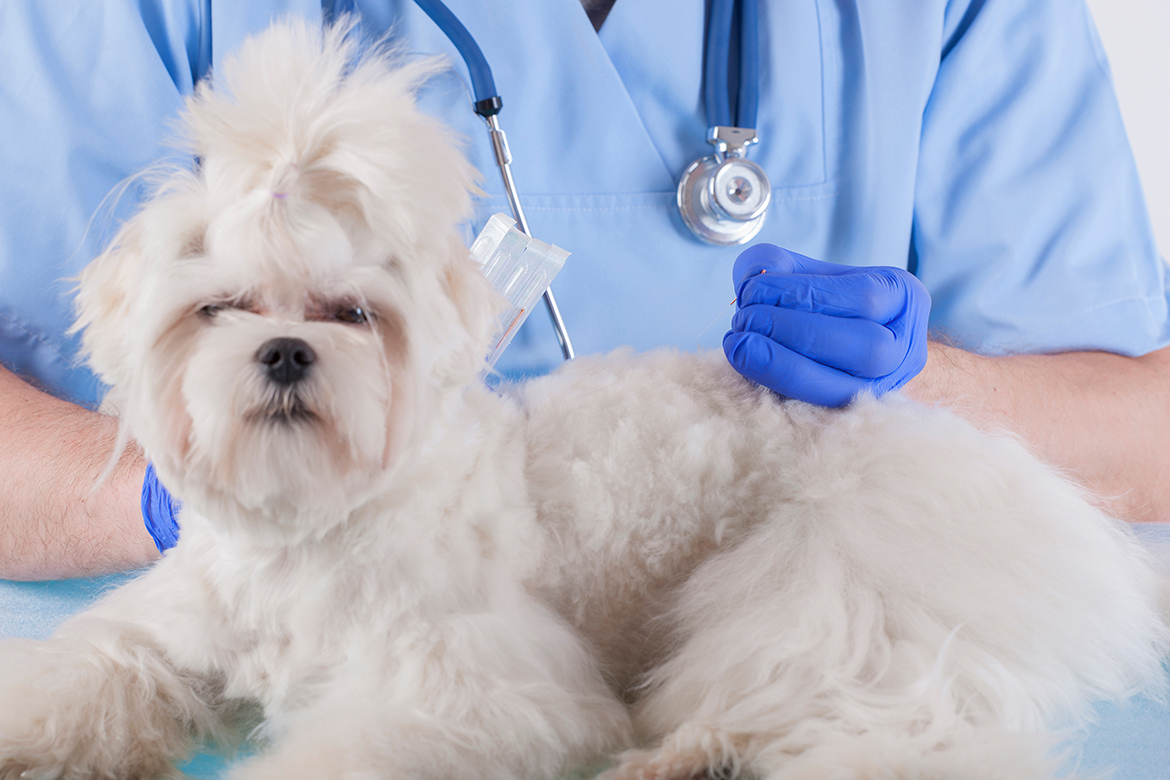1. Be prepared!
Whether you are a new pet owner, or if this is your first visit to a new veterinarian (for example, after a move) or for a consultation with a specialist, it is important that you take your pet’s health record with you. That will help your veterinarian and the vet team provide your pet with the best care.
For routine visits, be prepared to provide your veterinarian with a list of food brands and any medications administered. Be as precise as possible and mention any specific diet, as well as treats given on a regular basis.
Mention any change in water or food consumption: any loss of appetite or, conversely, excessive consumption should be a warning sign. Similarly, if your pet’s energy level, behaviour or usual condition have changed (such as vomiting or diarrhea), talk to your veterinarian.
Do you suspect your pet may be sick? Prepare a precise description of his or her condition and the symptoms you have noted, as well as how long it lasted.
To help you remember everything and get the most out of your visit to the veterinarian, consider preparing a list of questions before the appointment.
2. Prepare your pet
Even a simple routine visit can be stressful for your pet, with contact with other animals (some may be aggressive), or people they do not know…
If you can, go to the veterinary clinic with your pet a few days before the appointment, when your pet is calm. This will help your pet get familiar with the clinic staff.
At home, do some of the things your pet will experience during the visit such as being stood over, handled and touched especially around the eyes, ears and paws…
Make sure this is a pleasant experience! Exercising before your appointment will also help your pet experience a calmer and more relaxed visit!
3. At the clinic
Keep your dog on a leash when you get to the vet hospital. If you have a cat, do not take him/her out of his/her carrier. Bring a familiar object with you, such as a blanket or toy! He/she will feel more comfortable and less stressed!
Dogs and cats sense emotions: if you are stressed they will definitely be stressed too.
So, throughout the visit, try to remain calm.
A visit to the veterinarian is also an opportunity to ask how best to contact them (telephone, email, text message) and how to contact the veterinary team in a medical emergency. Record everything in your pet’s health record!
4. After the visit
If your pet’s condition allows, the best thing is to take him/her for a walk or play with him/her to reward him/her right after the visit.
If medical treatment is prescribed, record any changes in water and food consumption, behaviour and also when symptoms go away; this should be mentioned at the follow-up visit to your veterinarian.

